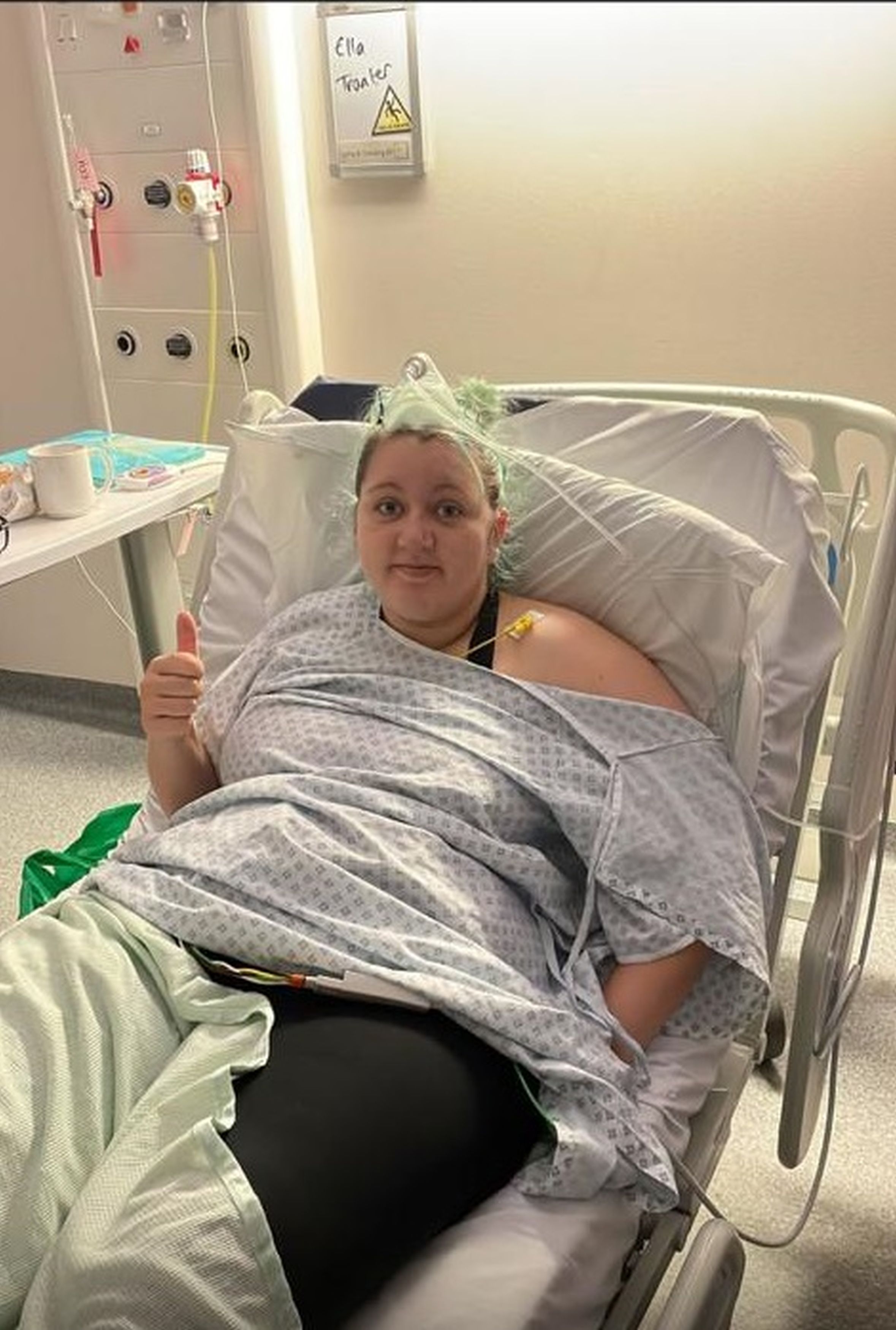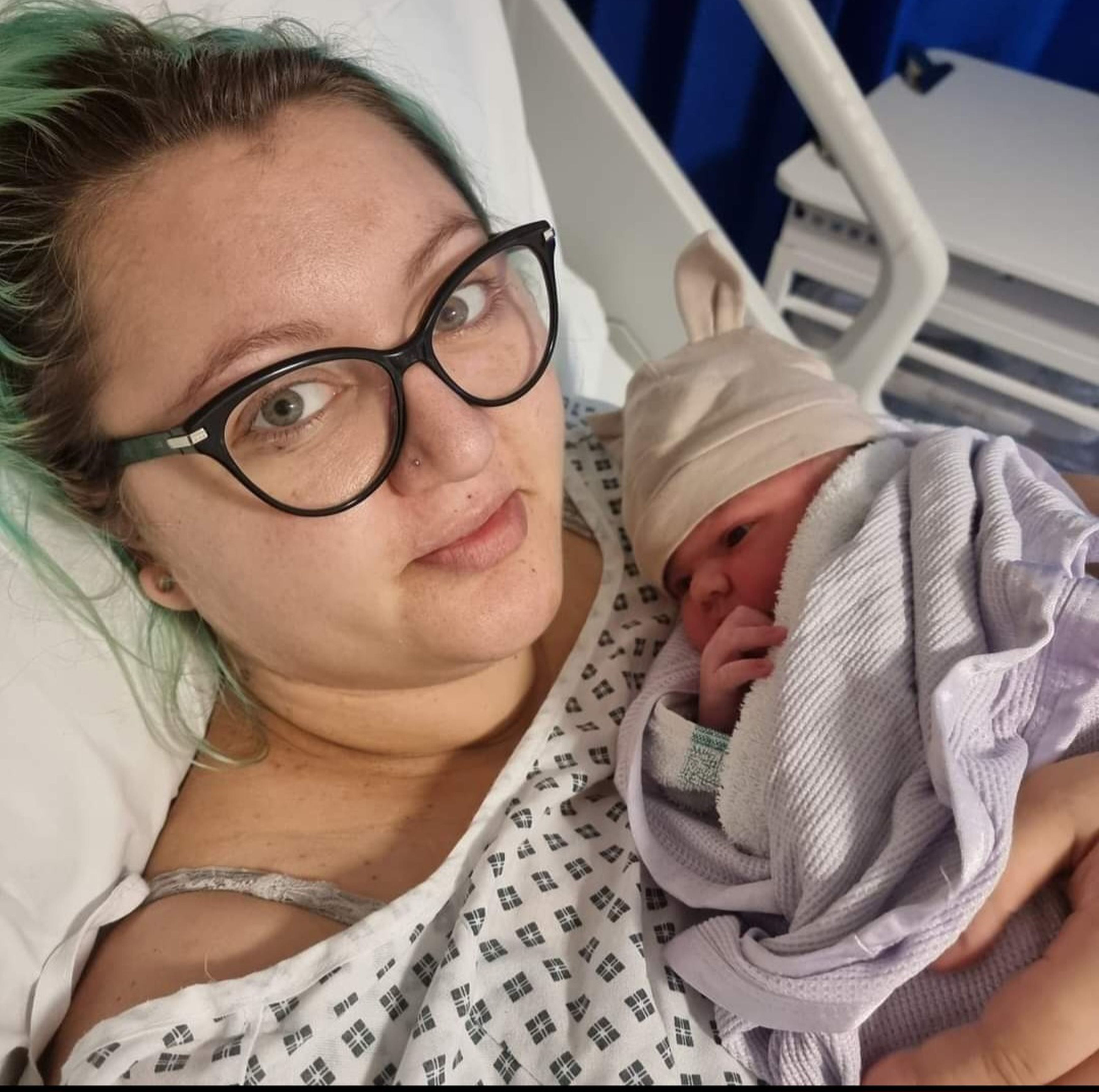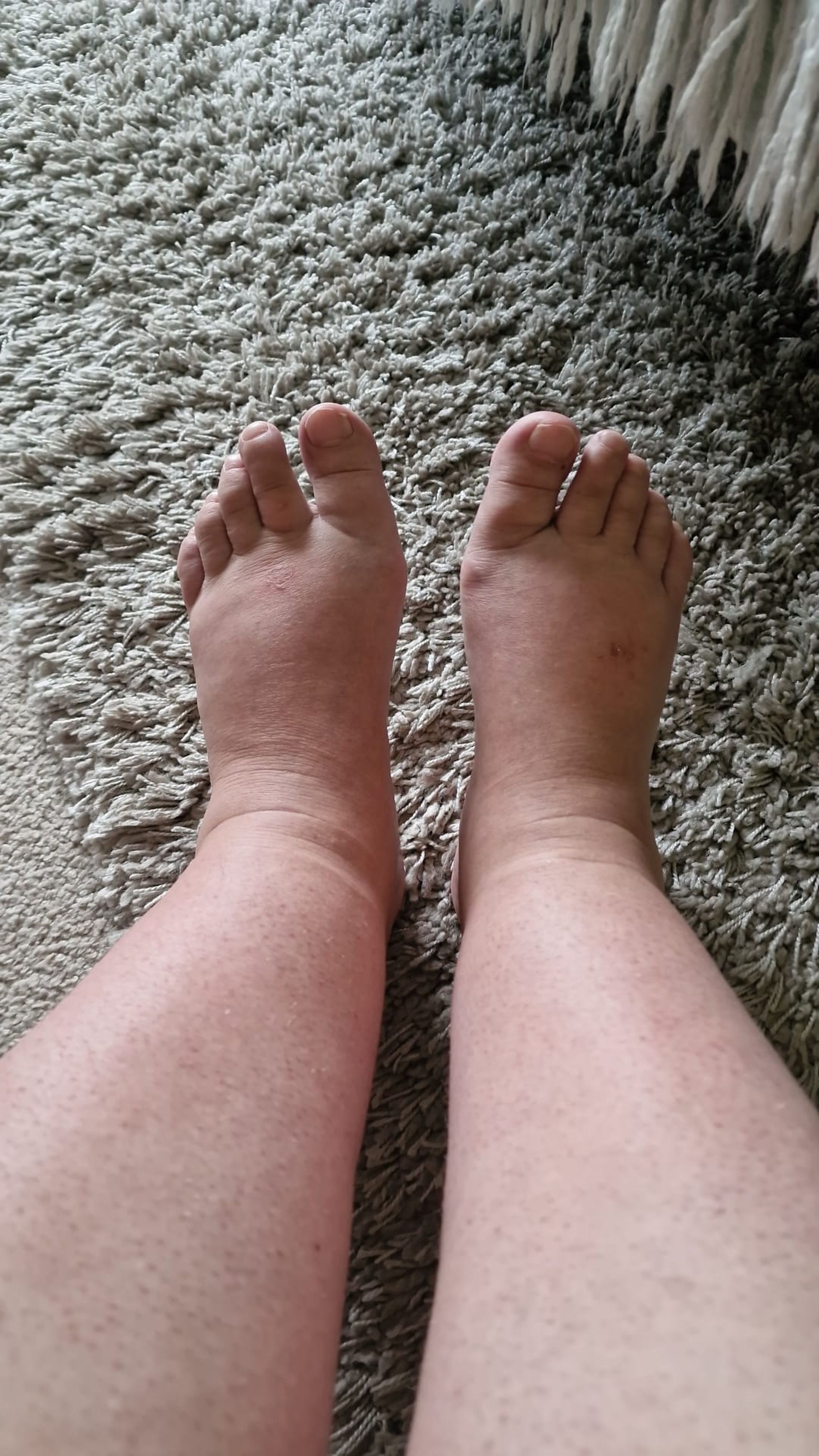Ella Tranter, 31, complained to her midwife as she started to suffer from swollen legs, weight gain, itchiness, high blood pressure and breathlessness during the third trimester of her pregnancy.
However, staff reassured her that these were “normal signs of pregnancy”.
The mum-of-one, from Stoke-on-Trent, welcomed her daughter, Edie, into the world following a difficult birth in November 2022.
A few days later, Ella began feeling breathless and lethargic and made the trip to A&E when her symptoms didn’t improve.
She was terrified when doctors told her she was suffering from severe heart failure – and may need an urgent heart transplant.
Ella was diagnosed with postpartum cardiomyopathy – a rare type of heart failure between the last month of pregnancy and five months post-delivery with no determinable cause.
I feel robbed of the experience of having those first few weeks with my newborn
Ella Tranter
Horrified at the news, the 31-year-old began preparing for her funeral.
Ella decided which songs she wanted played and what details she wanted her newborn to hear when she grew up.
Luckily for both, it never got that far as Ella’s condition was caught just in the nick of time.
She was given medication and had three-stone-worth of fluid washed out of her body.
Doctors admitted that Ella could’ve died had she not gone to A&E.
The graphic designer is “angry” her symptoms were “dismissed as normal” and has warned other mums to look out for the signs after nearly losing his life.
Ella said: “I do feel angry about what happened.
“There were so many signs that were missed by my midwife.
“I feel robbed of the experience of having those first few weeks with my newborn.”
Fortunately, Ella avoided needing a transplant and got better following the medication.
Despite making the recovery, she has been told that she can’t have any more children because of the risks associated with her postpartum cardiomyopathy.
The mum has urged others not to hesitate in seeking medical help.
Heart failure: Signs, symptoms and treatment
Symptoms of heart failure
- Breathlessness after activity or at rest
- Feeling tired most of the time and finding exercise exhausting
- Feeling lightheaded or fainting
- Swollen ankles and legs
Some people also experience other symptoms, such as a persistent cough, a fast heart rate and dizziness.
Symptoms can develop quickly (acute heart failure) or gradually over weeks or months (chronic heart failure).
When to get medical advice
See a GP if you experience persistent or gradually worsening symptoms of heart failure.
Call 999 for an ambulance or go to your nearest A&E department as soon as possible if you have sudden or very severe symptoms.
Treatments for heart failure
Treatment for heart failure usually aims to control the symptoms for as long as possible and slow down the progression of the condition.
How you’re treated will depend on what is causing your heart failure.
Common treatments include:
- lifestyle changes – including eating a healthy diet, exercising regularly and stopping smoking
- medicine – a range of medicines can help; many people need to take 2 or 3 different types
- devices implanted in your chest – these can help control your heart rhythm
- surgery – such as a bypass operation or a heart transplant
Treatment will usually be needed for life.
A cure may be possible when heart failure has a treatable cause. For example, if your heart valves are damaged, replacing or repairing them may cure the condition.
Postpartum cardiomyopathy
This rare form of heart failure occurs in the last month of pregnancy, or up to five months after giving birth
The symptoms include tiredness, shortness of breath, swollen ankles, swollen neck veins, and feeling of missed heartbeats or palpitations.






